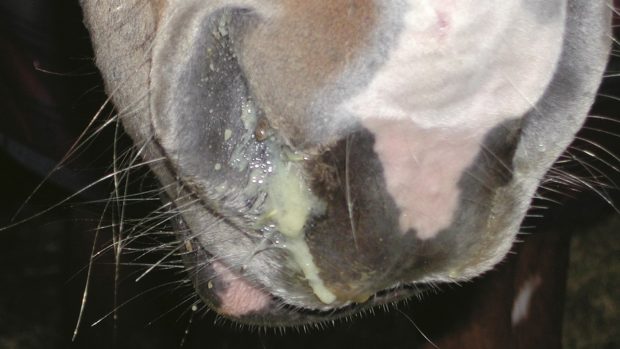“Without doubt, this is the greatest evening of my life,” I thought to myself as I galloped along 7km of deserted, unspoilt beach deep in a southern corner of Indonesia. A burning golden sunset cast the most beautiful light I’d ever seen, with only the sound of the Indian Ocean and the hoof beats of my native Sumbanese pony to accompany it.
This place is special, and it belongs to the natives of the island of Sumba and Nihi, a sanctuary that prides itself on privacy and personal restoration – it was voted best hotel in the world in 2016 and 2017 and remains firmly in the top 10 of many lists today.
During my six-night stay at this resort, which is owned by Christopher Burch, with top-notch hotelier James McBride at the helm, I made the conscious effort to soak up every second of this unique experience, which is so much more than your normal riding holiday.
The point of my visit is to sample a newly launched equine wellness package, Ride & Recharge.
“Whether you seek thrilling rides, a tranquil wellness retreat or moments of quiet observation of the herd atop the hill, each experience is handcrafted with care for an unforgettable journey,” says Professor Andreas Liefooghe, founder of these programmes.
From join-up to riding through the jungle before washing off with horses in the sea, I am not aware of any other place like it in the world that offers such a comprehensive range of activities to help residents reconnect with themselves.

The ponies were originally traded in exchange for sandalwood and spices.
I won’t lie, upon my arrival I really wanted a large (alcoholic) drink, but I was aware that this trip was centred around wellness so didn’t dare ask for one. Thankfully, the wonderful Evelien Akerboom, Dutch native and Nihi’s equestrian consultant and someone I instantly clicked with both on a “horsey” and personality level, recognised the look on my face and said, “Wellness doesn’t have to mean you starve yourself, get up at 4am and only drink green smoothies – it’s whatever makes you feel well.” I duly ordered a glorious, ice-cold pale rosé.
Evelien was at the centre of my trip and without doubt, she made it what it was. Her equestrian knowledge knows no bounds – she worked in competition yards on the Continent and in riding schools in Bali prior to her moving to Nihi in January 2022. She is kind and gentle with a lovely personable manner.
But what also makes her so great is that she is an out-and-out horsewoman and instantly I respected her. She is very much captain of the equine ship at Nihi. She is responsible for the staff around her at the Sandalwood stables, where around 25 horses reside, and a number of stable staff – all male native Sumbanese – plus the hotel’s equine breeding programme and hotel guests who wish to make use of the equine elements on offer.
Nearly all the equine residents are native to Sumba. The original breed of the local Sumba pony comes from Mongolian and Arab bloodlines, brought to Sumba for trading in exchange for sandalwood and spices hundreds of years ago.

Gemma with locals riding their native Sumba ponies, the original breed coming from Mongolian and Arab bloodlines.
Recognising my passion for horses, Evelien took on board the fact that I wanted to ride and spend as much time with her wonderful Sumbanese ponies as I could, while also experiencing some of the other wellness packages on offer. Rigorous checks are carried out prior to anyone being allowed to get on a horse, with a strict weight limit (75kg for all rides and 85kg for beach riding and swimming with horses), and nobody is permitted off the lead-rein unless they can clearly demonstrate they are safe to do so.
Ultimately, the welfare of these marvellous ponies is at the forefront of what Nihi offers and no riding takes place in the middle of the day as climate is tropical on Sumba and therefore very humid– it’s either a 7am sunrise ride or a 5pm evening version, each as breathtaking as the other. The rainy season tends to occur between December and March, with temperatures ranging between low-20s°C at night and high-30s°C during the day.
Before I knew it, and just three hours after arriving at the hotel, I was on board Sadie, a marvellous 14.1hh liver chestnut mare who knew the island and its terrain better than anyone. All riding is bitless and with very basic but horse-friendly tack. The hotel provides helmets and boots and I rode mostly in leggings – apart from when swimming in the ocean with the ponies.

Accompanied by Evelien, I set out on Nihiwatu Beach – a place of pilgrimage for die-hard surfers – at sunset. There aren’t enough adjectives to describe
riding at Nihi. I’ve ridden on beaches in various places before, but the vast swathes of sand, ocean, mountains and peace this place has, means it very much sits in its own lane in terms of equestrian holiday experiences.
Every waking hour of every day I was there, I made a conscious effort to live in the moment – as clichéd as that may sound. I rode twice a day, every day while I was there – I didn’t want to let this glorious opportunity pass me by.
The riding options available aren’t just “galloping along a beach”. I also hacked up through the mountains that rise up through the resort and through villages made up of huts, with chickens, goats, dogs and their litters of puppies, ponies and buffalo freely roaming the dirt tracks that intertwined them.
We were even afforded, on a couple of occasions, a front-row seat watching local farmers take their herd of buffalo, with their calves at foot, into the ocean to wash and cool down.
The spa safari was another highlight, in which you hack 90 minutes to the most jaw-dropping setting with a spa neatly enclaved on the cliff side. This trail ride meant I was privy to the rich tapestry of rural Sumba – with its paddy fields and sometimes jungle-like landscape – then an incredible three-hour spa experience overlooking the ocean, listening to the waves crashing below as I indulged in a range of next-level treatments. It’s no wonder the surfing here is deemed to be some of the best in the world.
It’s yet another reason why visitors crave the Nihi experience, with its private shores and white-glove surfing experience – no paddling out here, designated jet skis help you with that.
Swimming with the horses in the gin-clear ocean was an experience I will never forget. As is watching them gallop loose down from the hillside upon which they graze, along the beach and into the wash for a paddle and a roll, before taking themselves back to their stables each evening – a sight that had everybody mesmerised.

The horses gallop down to the beach by themselves for an evening paddle and a roll, before heading back to their stables.
But there was more to the equine wellness aspect than just sitting atop a horse. You could also unwind with them while unmounted, grounding yourself, reevaluating your life and building upon that. It might sound airy-fairy, but I assure you it had me fully converted.
I went on this trip completely wrapped up in life’s unwanted stress and returned ready to crack on with a clear mind – and perhaps, what’s even more telling of the power of this trip, is that my mind has remained this way ever since.
The journey to Nihi is a mammoth one, but when in search of total privacy – and, if you so wish, total disconnect from the world and all its humdrum and noise – it is a trip worth taking. So remote is this island, which is larger than Bali but with a much smaller population, that you feel as if you’re worlds away from anywhere.

Chill by the infinity pool, with uninterrupted views of the crystal-clear Indian Ocean.
Nihi is in the same time zone as Perth, Western Australia, and door-to-door from London Heathrow, with an eight-hour overnight stay in Bali, I made it there in 24 hours after three flights. But my goodness, was it worth it.
The level of service I was provided with throughout my trip was like nothing I have ever experienced. This began upon my arrival at Lede Kalumbang Airport, Sumba, where I was greeted directly off the plane by a Nihi employee.
The 90-minute private transfer from the north-western side of the island to the southern side was an eye-opener and one that was very contrasting to Nihi. Sumba is a place that, bar Nihi and a couple of other hotels, is completely untouched by Western influences.
It is like stepping back in time. The residents are mostly tribal, with each clan speaking a different dialect and a large percentage of the island lacking running water and electricity. Many of the native people live in traditional huts with high-peaked roofs, and are deeply religious, practising Marapu, an animist religion centred around ancestral worship, animal sacrifice during funerals, burials in megalithic tombs and ceremonial rites performed by shamans called ratos.
I keenly asked my driver an annoying number of questions as we weaved through small towns and villages, heavy with poverty, culture and tradition. Ponies in the back of open-backed vans had 10 or so children to keep them company en route to wherever they were heading.
Arriving at Nihi was a glorious but other-worldly experience, as the hotel has all the mod cons – poles apart from the sights I’d witnessed on the way to this corner of holiday heaven.
Nihi prides itself on employing local Sumbanese residents. And The Sumba Foundation, a brainchild of the hotel, raises funds via its residents to put back into the community – some villages have benefited from the addition of electricity and running water.
I was fortunate enough to experience two different villas – of which there are 27 – all completely private and with uninterrupted views of the ocean. First, the Puncak four-bedroom estate, which sits near the top of the hill on which the hotel is built. The second was the mind-blowing Mamole Treehouse. Both have their own private infinity pools, four-poster bedrooms, living-room areas, “wild” bathrooms with outdoor showers and enormous bathtubs.

The Mamole Treehouse boasts a private infinity pool, four-poster bedroom, outdoor shower – and butler.
Plus, there were butlers – known here as Guest Kaptens – for each villa, on hand whether it be for organising one of the tuk-tuks to transport you to the stables or restaurants, or for room service or an impromptu beach picnic.
While we’re on the subject, the food was out of this world – and it’s included within the price of each stay, as are all soft drinks.
There are three restaurants, including a beach club at the hotel, but if you’d rather remain totally private, full menus are also available via room service. There are plenty of options, whether you’d like to sample local Indonesian cuisine, or keep things closer to home with a more Western menu, with a comprehensive drinks menu to boot.
Nihi is so much more than a holiday. It’s a fully immersive experience that you can tailor to suit your needs. The people who work there really care and are proud of everything they provide. It’s truly a place like no other, and honestly I mean it when I said I had the time of my life.
What’s included
Nihi has high seasons from 1 April to 14 October and from 16 December to 14 January, with a minimum of a five-night stay. Low season is from 15 October to 15 December and from 15 January to 31 March, with a minimum of a three-night stay.
Rates are inclusive of the following:
● Three daily meals – breakfast, lunch, dinner, and all non-alcoholic drinks
● High-speed Wi-Fi
● In-villa mini bar (one full complimentary restock per day)
● Complimentary tour of projects by The Sumba Foundation
● Stand-up paddleboarding and snorkelling around Nihiwatu Beach
● Participation in group yoga and meditation classes
● Complimentary happy hour at the Boathouse Bar, daily from 5.30–6.30pm, with free-flowing domestic beers and house wine
● Prices range between $1,395 (£1,093) to $10,995 (£8,616) per night per villa for single or double occupancy in the low season
● The Ride & Recharge package starts at approximately £400 per person, in addition to accommodation charges
● Experience Travel Group offers this trip from £12,995 per person, including return flights with Qatar Airways from London Heathrow to Bali via Doha (there are no direct flights from the UK), a seven-night spa safari by horseback package at Nihi, transfers and two nights’ accommodation at the Hilton Garden Inn, Bali
● For more information, visit experiencetravelgroup.com
- To stay up to date with all the breaking news throughout Horse of the Year Show, London International and more, subscribe to the Horse & Hound website
You may also be interested in:

What to wear on a horseback safari: tips from a traveller

What to wear on a ranch experience holiday: tips from a traveller

What to wear on a trekking holiday: tips from a traveller





